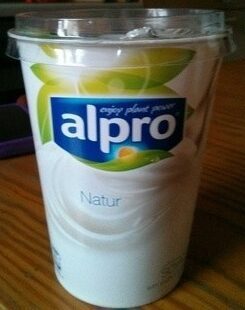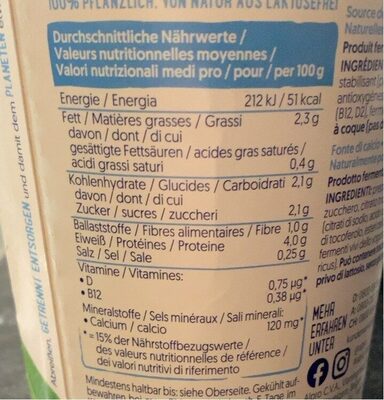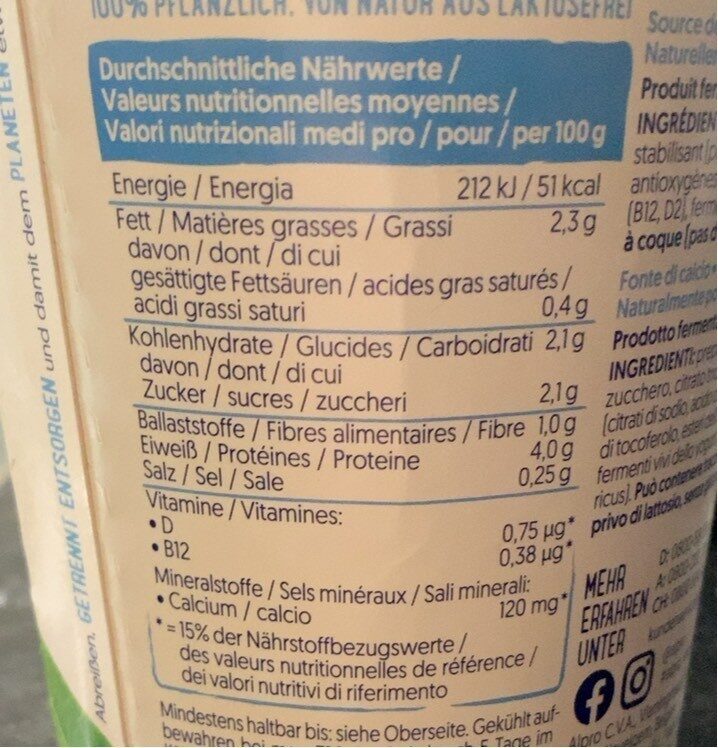Soya Natur - Alpro - 500g
This product page is not complete. You can help to complete it by editing it and adding more data from the photos we have, or by taking more photos using the app for Android or iPhone/iPad. Thank you!
×
Barcode: 5411188080213 (EAN / EAN-13)
Quantity: 500g
Packaging: Plastic
Brands: Alpro
Categories: Plant-based foods and beverages, Fermented foods, Plant-based foods, Dairy substitutes, Desserts, Non-dairy desserts, Non-dairy fermented foods, Non-dairy yogurts, Soy milk yogurts, Plain soy yogurts, Einfacher Soja-Joghurt, Fermentierte Lebensmittel, Fermentierte Lebensmittel ohne Milch, Milchfreie Nachtische, Pflanzenbasierte Joghurts, Sojajoghurt
Labels, certifications, awards:
No gluten, Vegetarian, Vegan, European Vegetarian Union, European Vegetarian Union Vegan, Nutriscore, Glutenfrei, Laktosefrei, Nutriscore Note A, Vegetarisch

Stores: ALDI Süd, Netto Marken-Discount
Countries where sold: Germany, Switzerland
Matching with your preferences
Environment
Carbon footprint
Packaging
Transportation
Report a problem
Data sources
Product added on by openfoodfacts-contributors
Last edit of product page on by off-replace-bot.
Product page also edited by date-limite-app, dimsum, ecoscore-impact-estimator, foodrepo, grumpf, hangy, inf, kiliweb, matt666, meringueal, moon-rabbit, packbot, planteuser, prepperapp, raphael0202, roboto-app, scanbot, sevenlives, tacite-mass-editor, taku, worldtest, yuka.DO9JHdqpT9AePcjbw409gSW7NP7dWsJCFmYMoQ, yuka.WGZrbUlaOVFsTU1BcXNBMThESFBwUDFYelpPREJUeXJNYlErSVE9PQ, yuka.sY2b0xO6T85zoF3NwEKvlk1lQsHduhj-ak3Uwne66eerM6HsQ-xi6IT7OKs, yuka.sY2b0xO6T85zoF3NwEKvllMXbfDkumvZNkXivVPW292ELKGxXctu7ozXI6g, yuka.sY2b0xO6T85zoF3NwEKvln4XCNCEjCzOFR7vkk-r4vOEFM3wftpT-ZLbGqs.







